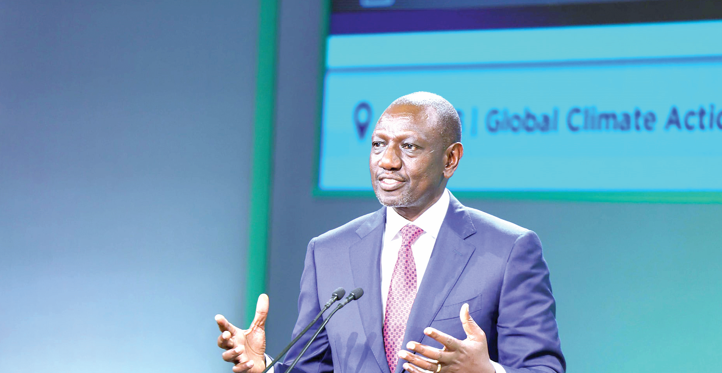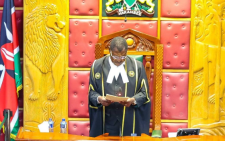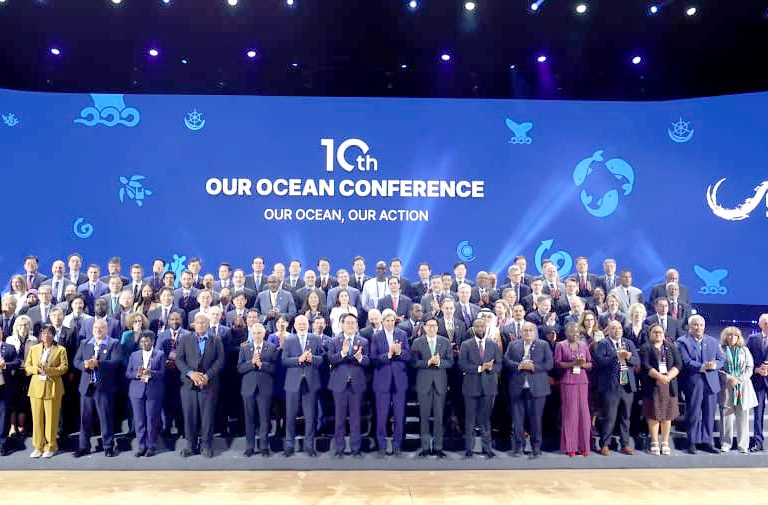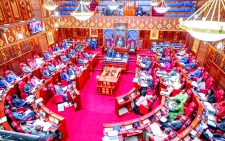Ruto leads African leaders in plans for renewable energy

Various African countries have laid down their ambitious plans to use their own available resources to transit from fossil fuels to green energies.
Speaking at the ongoing climate meeting, COP28, majority of the African nations say they do not need external resources as their nations are filled with renewable sources that makes it easy for them to shift from using fossil fuels to renewable energies.
President William Ruto said Africa has 60 per cent sources of renewable energies, some of the largest carbon sinks as well as a young population to make sure the transition is successful. “We are changing our policies to make the transition possible, we are aligning our opportunities with our goals and further giving incentives to attract more investors,” he said.
Ruto said they were looking for ways to rake in new revenues to make Kenya’s ambitious dream turn to a reality.
To achieve this, Kenya’s president said the continent was only interested in partnerships with like-minded companies and were keen in shedding off companies that were focused on “stealing” Africa’s resources. “We meant every word when we said we want to use our own resources to drive industrialisation. We want to process our own resources and ship them out as finished products instead of raw materials then ship them back. This is the only way to ensure we efficiently move to renewable energies,” he said.
Powerful partners
Ruto said Kenya had already garnered itself powerful partners who had committed $40 billion investment towards geothermal and green hydrogen.
Mauritania president Mohammed Ould Ghazouani said the era of Africa shipping out its resources for production was long gone and the continent is in the transitory phase.
“For years, developing countries have been deprived of their energy resources due to perceptions. It is not right to deprive these nations the right to their own resources. We have substantial resources and therefore rich countries should support us in developing ourselves and transitioning to clean energies,” he says.
Ould said its government had invested heavily in wind and solar, with these sources of energies already in operation.
The North-African country has also invested heavily in hydrogen, even though it is yet to be operationalised.
Ould said green hydrogen will be used in production of its electricity with a target of 100 per cent transition by 2030. “We have plans of not only using the energy we produce for local consumption but to also export. Europe is in need of green hydrogen and we are equipping ourselves to be a major exporter of these energies,” he said.
And while the discussions on transition gain momentum, Ould said developing countries should be left to shift at their own pace, without any external pressures.
“We are at the transitory phase where we continue to prepare for full transition. It will take time for us to fully shift and Africa should move at its own pace,” he noted.
Parts of the African continent are already ahead in the renewable energy push, with countries like Kenya generating over 80 per cent of their energy from renewable energy and the government promising to achieve 100 per cent by 2030.
Renewable energy
Ethiopia has over 4GW of installed hydropower capacity, and it is planning to add 10GW of capacity in the coming years. Morocco has made significant investments in wind and solar energy, and the country now has over 5GW of installed renewable energy capacity.
Morocco is also rapidly decarbonising its grid, wind and solar. South Africa has made notable progress in renewable energy development on the continent, and has ambitious plans to generate 42 per cent of its electricity from renewable sources by 2030.
While African leadership has leaned towards increasing renewable energy investments, there is still widespread concern with the ongoing scramble for Africa by oil and gas companies and the willingness of some nations to engage in new fossil fuel investment.












